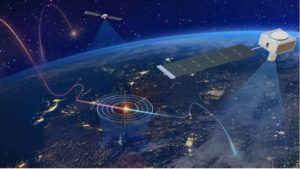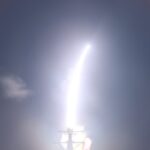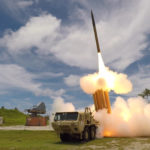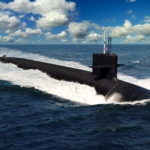
Four companies won $20 million contracts last week each to develop prototype payload designs for the Hypersonic and Ballistic Tracking Space Sensor (HBTSS) program. Northrop Grumman [NOC], Leidos [LDOS], L3Harris Technologies, and Raytheon [ RTN] each won $20 million firm-fixed-price prototype awards on Oct. 29. The contract notice explained the awardees will specifically provide the Missile Defense Agency’s HBTSS program with prototype payloads design and signal-chain processing risk reduction demonstration work. MDA awarded $15 million to each awardee at award…

 By
By 










